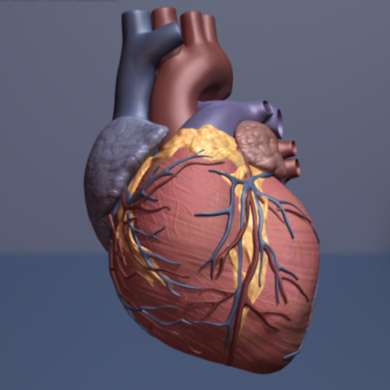Researchers create heart cells to study AFib

University of Illinois at Chicago researchers have discovered a way turn pluripotent stem cells into atrial cells, which make up the upper chambers, or atria, of the heart. The discovery will enable them to better study atrial fibrillation, the most common heart rhythm disorder also known as AFib, which originates in the heart's atria.
As reported in the journal Stem Cell Reports, the researchers obtained blood cells from healthy volunteers, activated genes to make the cells pluripotent—a type of stem cell that can become any cell type in the body—and treated the cells with vitamin A.
These cells responded to electrical stimuli like atrial cells. The researchers say this is notable because stem cells typically default to ventricular cells, which make up the lower chambers, or ventricles, of the heart when they become heart cells.
"There is a fundamental gap in our understanding of AFib, in part, because the condition is challenging to study at a cellular level," said corresponding author Dr. Dawood Darbar, professor of medicine and cardiology in the UIC College of Medicine. "While science has provided much-needed insights into the causes of inherited arrhythmia syndromes that originate in the ventricles, thanks to the development of cellular models that act like ventricular cells, we have, until now, lacked fully-characterized cellular models of atrial-like stem cells."
"There are a select number of cell types that conduct electricity—heart and brain cells are examples—but even among heart cells how they conduct electricity varies," Darbar said. "This is the first time a study has shown that treating stem cells with vitamin A generates cells that are electrically like atrial cells."
The researchers hope that this fully-characterized atrial-like stem cell model will not only improve our understanding of the causes for AFib and discover new treatments, but will also enable us to test whether a patient, based on their genetic makeup, is likely to respond to a particular treatment.
"We believe this model will enable more in-depth research on the elusive causes of AFib and will facilitate a more 'personalized' approach to treating AFib in the future," Darbar said.
More information: Stem Cell Reports (2018). DOI: 10.1016/j.stemcr.2018.04.005


















